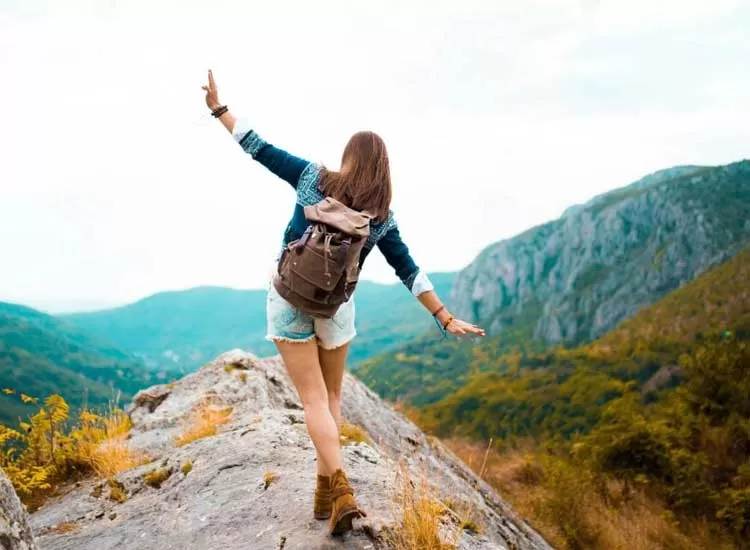Traveling as a solo female can be an incredibly rewarding and empowering experience. It allows you to explore new cultures, meet people, and discover yourself in ways you might not have imagined. However, safety is a top priority for any traveler, and when it comes to Kenya, a country known for its diverse landscapes, wildlife, and rich culture, many women wonder if it's a safe destination for solo exploration.
In this comprehensive guide, we will delve deeper into the safety considerations for solo female travelers in Kenya, offering insights and advice for various situations to help you plan a secure and memorable trip.

Situation 1️⃣: At the Airport in Nairobi
Nairobi's Jomo Kenyatta International Airport is often the gateway for international travelers arriving in Kenya. While the airport itself is relatively safe, there are several things to keep in mind to ensure a smooth transition into the country:
Arrival Time
It's advisable to arrive during daylight hours. This not only allows you to see your surroundings clearly but also ensures you have access to safer transportation options to reach your accommodation.
Transportation
Pre-arranging airport transfers with trusted providers or using registered taxis is highly recommended. This helps you avoid potential scams and ensures a secure journey to your destination. Make sure the driver's identification and vehicle details match the information you received during the booking.
Valuables
Keep your belongings secure at all times. Use a crossbody bag with a zipper or a hidden money belt to deter pickpockets. Avoid displaying expensive items like jewelry and electronics that might attract unwanted attention.
Situation 2️⃣: On the Center of the Street
Exploring Kenya's cities and towns is an adventure in itself. To ensure your safety while wandering around, consider the following guidelines:
Dress Modestly
Respect local customs and traditions by dressing modestly. In many Kenyan communities, it is customary to cover your shoulders and knees, especially when visiting religious sites or rural areas. Wearing appropriate attire not only shows respect but also helps you blend in with the local culture.
Avoid Walking Alone at Night
It's advisable to avoid walking alone at night, especially in unfamiliar areas. After dark, consider taking taxis or using rideshare apps like Uber to get around. Staying in well-traveled and well-lit areas is essential to minimize potential risks.
Stay in Well-Lit Areas
Stick to well-lit and busy streets when walking during the evening. Avoid shortcuts through dark alleys or poorly lit areas, as these can be more vulnerable spots for petty crimes.
Kenya Health & Safety Travel Tips
Ensuring your health and safety while traveling in Kenya is paramount. Consider the following recommendations:

Vaccinations
Consult with a healthcare professional well in advance of your trip to determine the recommended vaccinations and prophylaxis for diseases like malaria. Ensure that your vaccinations are up-to-date, and carry your medical records with you.
Travel Insurance
Purchase comprehensive travel insurance that covers medical emergencies, repatriation, and trip cancellations. Verify that your insurance includes coverage for activities you plan to undertake in Kenya, such as safaris or adventure sports.
Stay Informed
Stay informed about the current security situation in Kenya. Check with your country's embassy or consulate for travel advisories and updates. It's essential to have a clear understanding of any potential risks and safety recommendations for specific regions within Kenya.
Local Contacts
Maintain a list of emergency contacts, including local authorities, your country's embassy or consulate, and your accommodation's contact information. Share your itinerary with a trusted friend or family member back home.
Food Hygiene in Kenya
Sampling the local cuisine is one of the highlights of traveling, but it's essential to practice good food hygiene to avoid foodborne illnesses:
Choose Established Eateries
Opt for restaurants and street vendors with good reviews and visible food safety measures. Locals often know the best and safest places to eat, so don't hesitate to ask for recommendations.
Water and Ice
Stick to bottled or purified water and avoid ice in your drinks to prevent waterborne illnesses. Ensure that any fruits and vegetables you consume have been thoroughly washed and cooked. It's also a good idea to carry a reusable water bottle with a built-in filter.
Wash Hands
Prioritize hand hygiene by carrying hand sanitizer and washing your hands regularly, especially before eating. Travel-sized hand sanitizers can be convenient for on-the-go use.
Cultural Sensitivity
Respecting the local culture and customs is crucial for a positive travel experience in Kenya:
Greetings
Learn some basic Swahili greetings like "Jambo" (hello) and "Asante" (thank you). Locals appreciate when travelers make an effort to connect on a cultural level.
Photography Etiquette
Always ask for permission before taking photos of people, especially in rural areas. Some individuals may find photography intrusive, and it's essential to respect their privacy.
Wildlife Conservation
When visiting national parks and wildlife reserves, adhere to the rules and guidelines provided by park authorities. Never feed or approach wild animals, as this can endanger both you and the animals.
Transportation Safety
Getting around Kenya can be an adventure in itself. Here are some tips for safe transportation:

Matatus and Public Transport
Matatus are the minivans commonly used for public transportation in Kenya. While they can be a cost-effective way to travel, exercise caution when using them. Opt for well-maintained vehicles with experienced drivers.
Domestic Flights
If you plan to explore different regions of Kenya, consider using domestic flights for long-distance travel. These flights are generally reliable and provide scenic views of the country.
Boda Bodas
Boda bodas are motorcycle taxis commonly found in urban areas. Ensure the driver provides a helmet, and always wear it. Negotiate the fare in advance, and don't hesitate to refuse a ride if you feel uncomfortable.
Accommodation Choices
Choosing safe accommodation is crucial for a solo female traveler:
Reputable Accommodations
Select accommodations with good reviews and a strong reputation for safety and hospitality. Consider staying in established hotels, lodges, or reputable hostels with secure facilities.
Solo Traveler-Friendly Hostels
If you prefer the social aspect of hostels, opt for those that offer female-only dormitories or private rooms. These accommodations often provide a safer and more comfortable environment for solo female travelers.
Airbnb and Homestays
If you opt for Airbnb or homestay accommodations, read reviews and communicate with the hosts before booking. Ensure that the property is in a safe neighborhood and that you have a clear understanding of the check-in process.
Interacting with Locals
Engaging with locals can enhance your travel experience but exercise caution:
Trust Your Instincts
Use your intuition when interacting with strangers. While most people you meet will be friendly and helpful, be cautious if something doesn't feel right. Politely decline offers that make you uncomfortable.
Join Group Tours
Consider joining group tours or activities where you can meet fellow travelers and explore with a sense of security. These tours often include knowledgeable guides who can enhance your understanding of local culture and history.
Connect with Other Travelers
Use online forums and social media platforms to connect with other solo female travelers in Kenya. Sharing experiences and advice can be a valuable resource for staying safe and making the most of your trip.
Conclusion
In conclusion, Kenya can be a safe and rewarding destination for solo female travelers when the right precautions are taken. By following the guidelines and being aware of your surroundings, you can enjoy the beauty and culture of Kenya while ensuring your safety throughout your journey. Remember that every traveler's experience is unique, and while there may be risks, the majority of women who explore Kenya solo do so without incident, creating unforgettable memories and meaningful connections along the way.
Embrace the opportunity to explore Kenya's breathtaking landscapes, wildlife, and vibrant culture while prioritizing your safety. With careful planning and an open mind, your solo adventure in Kenya can be an enriching and empowering experience you'll cherish for a lifetime.
To obtain a Bahamas eVisa
Step1: Fill out the digital application form with your passport particulars.
Step2: Make the payment securely online using a credit card.
Step3: Keep an eye on your email for payment confirmation and the electronic delivery of your eVisa
